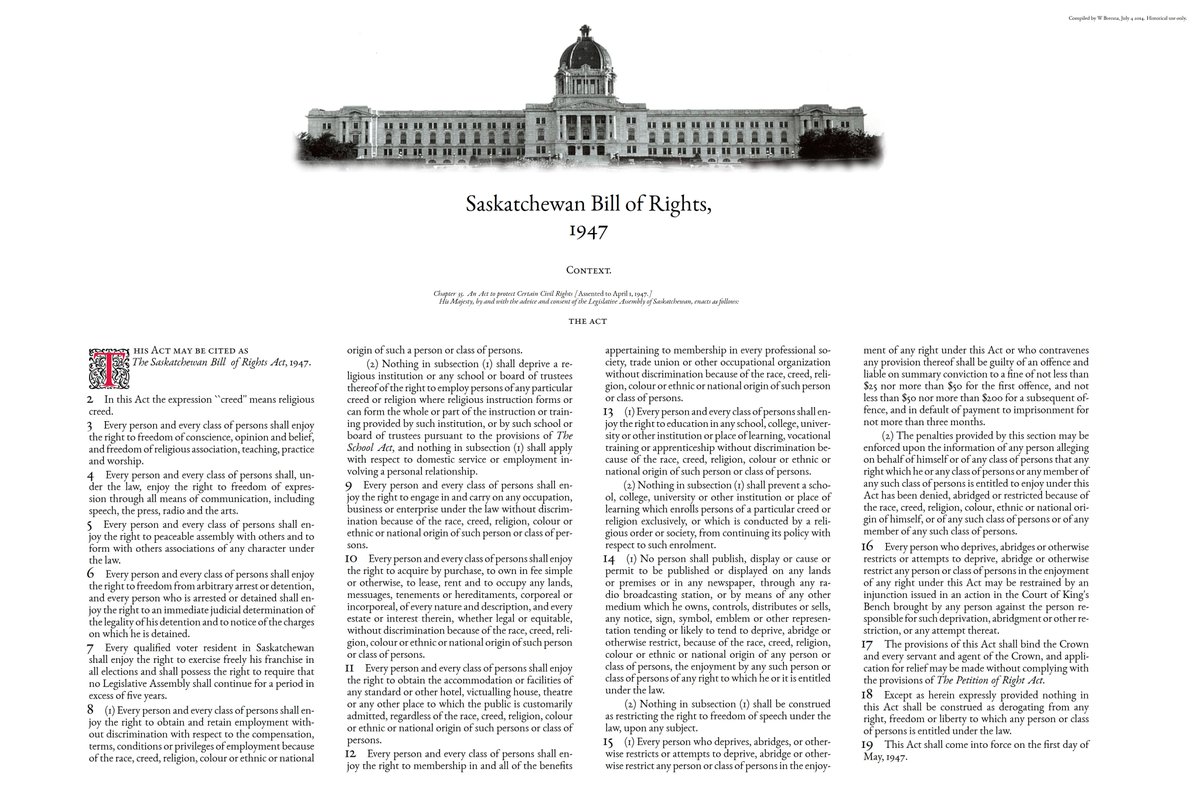The Saskatchewan government today introduced Bill 137, the Parents' Bill of Rights. If passed, the bill will enact the government's policy requiring parental consent to students under 16 using their preferred names and gender identities at school. docs.legassembly.sk.ca/legdocs/Bills/…
The bill forces a cruel choice on students under the age of 16 who are not comfortable coming out to their parents about their gender identities: hide your gender identity at school or be forced to come out to your parents.
This is so even if they are mature minors, and even if seeking parental consent puts them at risk of harm.
The government is intent on enacting its policy even though Justice Megaw found it risked imposing irreparable harm on students: canlii.ca/t/k0gn9
The government is also ignoring the recommendations made by Lisa Broda, the province’s Advocate for Children and Youth, in her report finding that the policy violated the Charter, the Human Rights Code, and the Convention on the Rights of the Child. saskadvocate.ca/review-of-mini…
The parental consent requirement is set out in s.197.4(1). It contains a notwithstanding clause overriding the rights protected by s.2 (fundamental freedoms), 7 (life, liberty and security of the person) and 15 (equality rights) of the Canadian Charter of Rights and Freedoms. 

It also overrides all of the rights protected by the Saskatchewan Human Rights Code and contains provisions seeking to protect the government from lawsuits seeking indemnification for the harms it knows this legislation will cause.
It does all this for no good reason; it is perfectly possible to achieve a reasonable balance between parental rights and children’s rights on this issue. The government hasn't bothered even trying. A sad and shameful day in Saskatchewan.
• • •
Missing some Tweet in this thread? You can try to
force a refresh

 Read on Twitter
Read on Twitter




